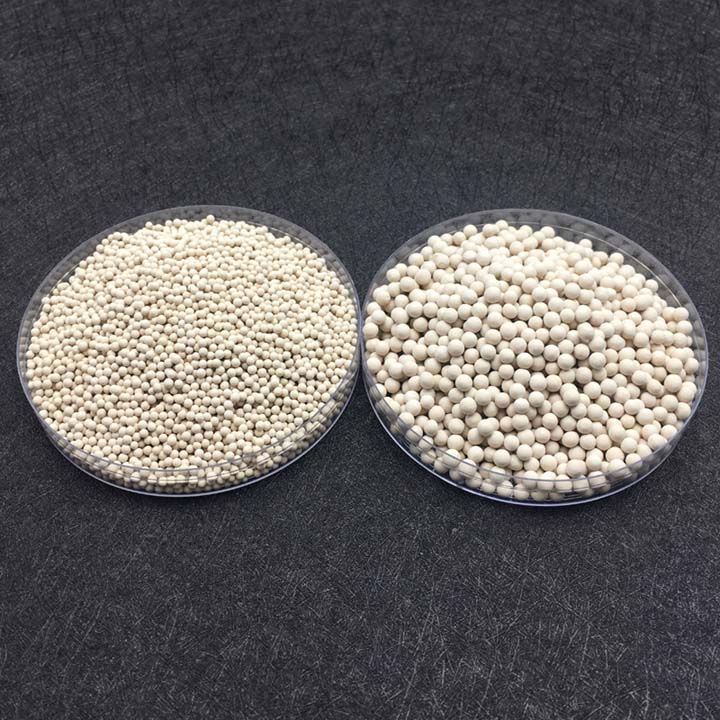What should be paid attention to when storing
molecular sieves?
1. Molecular sieves are easy to absorb moisture: They should not be in direct contact with the air during storage, and should be placed in a dry place. Molecular sieves that have been stored for a long time and have absorbed moisture should be regenerated before use.
2. Molecular sieves avoid oil and liquid water: Oil can block the pores of molecular sieves. Especially during regeneration, the oil may be carbonized and the pores may be blocked. For the gas containing oil, the oil and gas, oil and water should be separated first, and then the molecular sieve tower should be carried out. Because molecular sieves release heat when they absorb water, direct contact of liquid water with zeolite produces a large amount of heat release. Hazards may occur, or the performance of molecular sieves may be destroyed.
3. When the molecular sieve tower with pressure is used for regeneration and conversion, the internal pressure of the tower should be slowly reduced. If the pressure is too large, if the pressure is too large, the molecular sieve particles will be broken and pulverized. The higher the regeneration temperature, the safer the regeneration, but the energy consumed by the regeneration will also increase, and the life of the molecular sieve will also be shortened, so the regeneration temperature is more suitable between 200-350 °C. Usually the regeneration temperature should not exceed 600℃, otherwise the activity of the molecular sieve will decrease.
Molecular sieves are widely used in adsorption, ion exchange, catalysis and other fields due to their good adsorption, catalysis and ion exchange properties. Among these substances, adsorption materials are mainly used in the separation, purification and drying of various gases in various industrial and environmental fields, such as dehydration and drying of chemical raw materials such as natural gas and petroleum cracking gas, high-efficiency and energy-saving building insulating glass desiccant, carbon dioxide Desulfurization, xylene isomer separation, olefin separation, oxygen and nitrogen separation, refrigerant drying, etc. Catalysts are mainly used in many industrial catalytic processes such as petroleum refining and processing, petrochemical, coal chemical and fine chemical industries. Ionized materials are mainly used in washing aids, radioactive waste, and waste liquid treatment.
